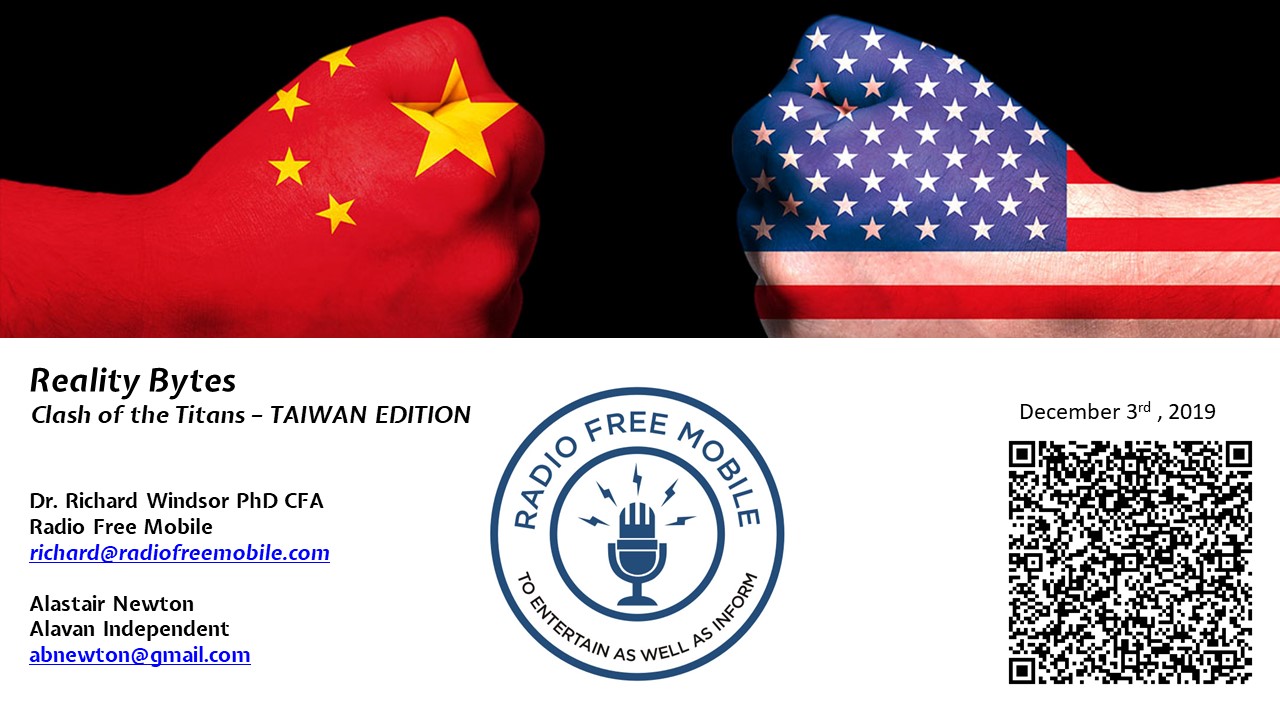Taiwan’s uncertain political status is a hot potato for the technology industry. This is because semiconductors are a crucial element in all technology products and the best manufacturer (TSMC) is predominantly based in Taiwan. The January 2020 general election is likely to result in a government that aims to keep the current status-quo; this might work as long as China can think of TSMC as Chinese. However, as the trade and technology rivalry heats up, Taiwan is at risk of becoming collateral damage.
- Hong Kong. The protests and the local elections in have both badly hurt the prospects of a more pro-Beijing stance from Taiwan following the presidential and legislative election on January 11th The former especially is being seen as a sign that reunification under ‘one country, two systems’ would seriously put at risk the hard-won democratic rights of Taiwanese citizens.
- Presidential election. 12 months is an eon in politics and the last year has seen a complete reversal of the political fortunes of President Tsai Ing-wen such that she is now the firm favourite to win next year. This is a clear indication that the Taiwanese are not keen on reunification irrespective of the ‘system’ in use.
- Legislative election. However, Taiwan’s weak economic performance has also had a big impact and the race of the legislature is neck and neck between the more pro-Beijing nationalist KMT and Ms Tsai’s more pro-independence DPP. This could easily result in the desire to continue with the status quo. Will China be willing to allow that to happen and, if so, for how long?
- Made in China 2025. The trade war and technology rivalry between the USA and China have greatly increased China’s drive for technology independence and its almost complete dependence on non-Chinese technology in semiconductor manufacturing rankles greatly.
- TSMC is the global leader in semiconductor manufacturing by a wide margin. If China were to control this asset, then Beijing could justifiably claim to have achieved independence in semiconductor manufacturing. The issue for TSMC is that 61% of its revenues come from USA clients which puts it in a very delicate position of trying to serve two masters who are increasingly at odds with one another.
- Question of counting. Radio Free Mobile (RFM) thinks that it is very unlikely that China will be able to control TSMC in reality; but, if it could count all of TSMC as Chinese, it would create the impression of greater technological independence. This could tide it over while it works on the real technologies such as Quantum Computing, Robotics etc, where it has a genuine opportunity to be a world leader.









Autonomous Driving – Brain ...
07 May 2024